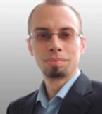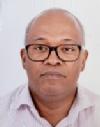Warwick Practice Fellowship
In 2023, we were pleased to offer the Warwick Practice Fellowship to Rohan Chinchwadkar.
The Warwick Practice Fellowship award covers all fees for a participant who is affiliated with an institution based outside of Europe, North America, Australasia or East Asia, or who is resident there. The fellowship is intended to support scholars who document practices indigenous to non-traditional settings. As organisers we appreciate that such scholars might be faced with challenges that academics elsewhere do not encounter. Meanwhile, we believe that practice studies from less familiar settings have a valuable contribution to make to the field. The Warwick Practice Fellowship is our gesture in support of such scholars and an effort to help them grow.
2023 Practice Fellow - Summer School
Rohan Chinchwadkar, Assistant Professor (Finance), Shailesh J. Mehta School of Management
I'm honoured to be awarded the Warwick Practice Fellowship for the 2023 Warwick Summer School on Practice and Process Studies. I am an Assistant Professor of Finance at SJM School of Management, an Associate Faculty at DS School of Entrepreneurship and Professor In-Charge of HE-IITB Innovation Lab at the Indian Institute of Technology (IIT) Bombay, India. I have been an Assistant Professor at the Indian Institute of Management (IIM) Trichy and a Visiting Professor at IIM Calcutta and IIT Jodhpur. I have completed a PhD (Finance) from IIM Calcutta and a B.Tech. (Electronics) from VJTI, Mumbai. I have also worked as a management consultant with the prestigious consulting firm McKinsey & Company.
My research and teaching interests lie in the Practice and Financing of Entrepreneurship and Innovation, with a focus on themes like entrepreneurial support organizations (ESOs), startup financing, startup incubation, venture capital, financing of innovation and women entrepreneurship. Our research group is currently engaged in ethnographic work across a wide variety of ‘sites’ across India like innovation labs, technology business incubators, indigenous art entrepreneurship ecosystems and entrepreneurship schools. We have explored themes like the role of epistemic objects and expert work in creative and constructive practices of technology business incubators, dialogical future-making practices in product development meetings and an actor-network theory view of how creative innovators-entrepreneurs are enrolled in innovation labs.
I have also co-edited the book "Shifting Orbits: Decoding the Trajectory of the Indian Startup Ecosystem" (forewords by Mr. Anand Mahindra, Chairman, Mahindra Group and Prof. K VijayRaghavan, Principal Scientific Advisor to Government of India) and recently launched by Mr. Amitabh Kant, CEO, NITI Aayog. Apart from academic research, I have actively engaged with public discourse in India by writing several opinion pieces for national newspapers and media outlets like The Economic Times, Mint, The Hindu Business Line, The Financial Express, Bloomberg Quint and YourStory, and have been quoted in international media outlets like Bloomberg.
The theme of this year’s Warwick Summer School, Body and Embodiment, is of particular interest to my research group because bodily skills play a crucial role in several aspects of entrepreneurship-as-practice. As an example, in technology-based entrepreneurship and product development, working with your hands (and body) in tinkering labs and maker spaces is a key part of the process and practices. The role of bodily skills in indigenous art entrepreneurship is even more pronounced since these skills are usually passed on from one generation to another, and are not documented (sometimes cannot be documented) in texts. We are sure that participation in the summer school will enable us to build a strong foundation in understanding how to study the role of the body and embodiment in entrepreneurship, the methodological tools which can be used and the different theoretical lenses with which we can engage. I look forward to being there as a representative of my research group!
2022 Practice Fellow - Summer School
Heiko Marc Schmidt, PhD candidate, universidad EAFIT
It’s an honour and a privilege to be awarded the 2022 Warwick Practice Fellowship. My research looks at the unfolding of strategy-making in international new ventures from Colombia, applying a strategy/entrepreneurship as practice lens. Only a fraction of the research on international entrepreneurship has looked in-depth at the work and practices of entrepreneurs, and even less of it has been done in Latin American, despite the theoretically and empirically promising setting.
My research is based on ethnographic grounded theory, and fieldwork has been ongoing since 2019. In a first article under review, my co-authors and I detail the practice of strategy-making with the ecosystem, highlighting how the strategy made for a startup is collectively achieved within the local entrepreneurial ecosystem. By following this practice and looking at the shared understandings and activities of different ecosystem actors with and without formal ties to the venture, we show that their interactions with startup founders go far beyond giving and receiving advice. Jointly, these ecosystem actors make strategy and take decisions collectively and help galvanize pro bono resources from the surrounding ecosystem. In short, despite a predominant focus on the entrepreneur or entrepreneurial team in extant research, they, or the venture`s formal contacts, are by far not the only ones doing important entrepreneurial work.
I am extremely grateful to the organizers and hosts of the Warwick Summer Schools over the years, which have significantly contributed to my formation as an academic, and my dissertation. I also want to highlight that for those of us with affiliations outside of the most developed countries, the fellowship is a great signal and encouragement to apply, participate, and become more deeply involved with practice and process research.
Frank Soe Agnie, PhD candidate, Anton de Kom University of Suriname
I am honored to be nominated and awarded the 2022 Warwick Fellowship of the Warwick Summer School on Process and Practice Studies. As a PhD candidate of Nyenrode Business University located in The Netherlands, and resident of my home country Suriname, I am studying how family businesses in Suriname are becoming resilient and how they maintain resilience to sustain their business and business family. I adopt a practice perspective as research approach to investigate the dynamics of processes, practices, and routines, within the context of Surinamese family firms with their unique and distinctive resources, capabilities, and characteristics. The aim of this research project is to examine the role these processes, practices, and routines play in emerging and evolving organizational resilience. I believe that in-depth insights into everyday activities of family members, owners, managers and key personnel will provide a better understanding of what resilient organizations do and how resilience can be developed. This knowledge contributes to the explanation of empirical observations that some family firms are, compared to others, better equipped to cope with and recover from adversities.
My participation in the 2022 Warwick Summer School on Practice Studies provides me with the opportunity to meet, exchange ideas and learn from like-minded, starting practice researchers and highly valued experienced practice theorists. I thank the Warwick Business School and the organizers of the Summer School for their support in my journey of becoming an experienced scholar of practice-based management and organization studies.
2021 Practice Fellow - Summer School
Chendan Cui-Laughton, PhD candidate, Department of communication, Université de Montréal

It’s such a great honor to be awarded the 2021 Warwick Practice Fellowship. Being a China-born immigrant to the U.S., I am passionate about studying organizational communication from a cross-cultural perspective. My research is focused on practices that take place in Chinese society, where people hold different worldviews, ideologies, and traditions. To do so, while anchoring my study in the communicative constitution of organizations (CCO) tradition, I rejuvenate traditional Chinese thoughts and indigenous social theories, and aim at enriching insights about the Chinese way of organizing and its global influence under the current global dynamic.
My ongoing dissertation pays attention to traditional Chinese martial arts organizations (TCMAOs), which belong to one special group of secular religious organizations. Despite the “Kung Fu craze” which began in the 1970s, TCMAOs are still an understudied marginal territory in organization studies. But it is a “golden ore” to study the Chinese way of organizing since it is at the crossroads of tradition and modernity and plays a huge role in the thriving martial arts industry and China’s global ideology campaign. My framework integrates the Montreal School’s views on communication and authority with Chinese anthropologist and sociologist Fei Xiaotong’s theory of Chaxugeju (differential mode of association) and develops the concept of differential authority as a new lens to examine authority. I specifically investigate how body practices, such as photo-posing, combat, and ritualized body practices, contribute to the communicative accomplishment of authority. This project aims at contributing insights about authority and practice theories gained from indigenous theories and practices.
I am amazed by how well-structured and organized the Warwick Summer School is. I am grateful that I can have this valuable opportunity to learn from like-minded individuals and listen to top-leading scholars in the field. Moreover, I believe all the constructive feedback from the “research clinic” will help me better craft my dissertation. Most importantly, I want to express my tremendous gratitude to the Warwick Business School and the organizers of the summer school for supporting studies in unfamiliar and non-Western settings. This fellowship is a great encouragement for scholars who might feel marginalized due to their research topics or research settings: the marginal can be the new mainstream.
2021 Practice Fellow - Beginner's Day
Tina Sahakian, Visiting researcher, Tilburg University
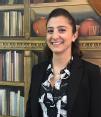
I am exceedingly grateful to Warwick Business School and the organizers of the Beginners’ Introduction for being awarded the 2021 Warwick Fellowship. In my research, I examine the practice of Evidence-based Management and its contextual nuances among Lebanese hospital managers. I believe practice and process theories can help develop current understanding of Evidence-based Management practice in the Lebanese healthcare context and ways to encourage its future adoption. Participating in the Beginners’ Introduction will allow me to gain the understand necessary to leverage these theories to achieve my aims. My participation would simply not be possible without the Warwick Fellowship.
Vidit Mohan, PhD candidate, Shailesh J. Mehta School of Management, Indian Institute of Technology, Bombay, India

I extend my sincere gratitude to the Warwick Business School and the organizers of the 2021 Warwick Summer School for awarding me the 2021 Warwick Practice Fellowship. As a PhD student at IIT Bombay, I am studying the practices of business incubation in India. This research is aimed at generating novel empirical and theoretical insights by adopting the Entrepreneurship as Practice (EaP) approach in the context of an innovation and incubation center in India. Since, the support organizations have remained relatively under-explored in entrepreneurship research, the aim is to determine the practices associated with the early-stage entrepreneurial ventures by adopting a multiple-practitioner perspective in the entrepreneurship ecosystem. I am convinced that this introductory session would be intellectually stimulating and would allow me to improve my research design to make meaningful contributions.
Gislaine Sediyama, PhD Candidate, University of São Paulo
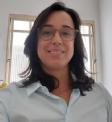
I am glad to be awarded the 2021 Warwick Practice Fellowship. I am studying public organizations that faced traumatic shocks to understand how the organizing enacted this disruptive event to innovate and appropriate digital spaces to expand the borders of an organization. Exploring jointly process, temporality, spatiality, and digitality, I believe that public Museums offer a thought-provoking understanding of this phenomenon. In essence, museums give us access to the past, a unique historical heritage that could be lost when a traumatic event suddenly happens, and the museums fail to manage some risks.
I am thankful for the opportunity to be in touch with the practice and processes thinkers and researchers to learn and develop my ideas. Thanks to Warwick Business School and the summer school organizers for the support and effort to help me grow.
2020 Practice Fellow
Maria Andrea De Villa, Professor of Strategy, Universidad EAFIT, Colombia
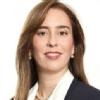
I gratefully appreciate being awarded the 2020 Warwick Practice Fellowship. I am currently studying how Colombian coffee growers develop practices to adapt and contribute to climate change. The National Colombian Association of Coffee Growers is one of the biggest NGOs in the world and has developed an effective set of practices and processes to address climate change. From a strategic management perspective, I believe this case can advance our understanding of the development of organizational practices and processes for addressing climate change, and more broadly, global challenges. Therefore, I am immensely thankful for the opportunity to develop my research by learning state-of-the–art understandings of practice and process studies. Moreover, I am looking forward to receiving constructive feedback from top-leading scholars in the field to improve my research design with the aim of making a valuable contribution to theory and practice. I wish to express my gratitude to Warwick Business School and the organizers of the summer school for sponsoring this fellow and supporting scholars who conduct research in less familiar settings.


